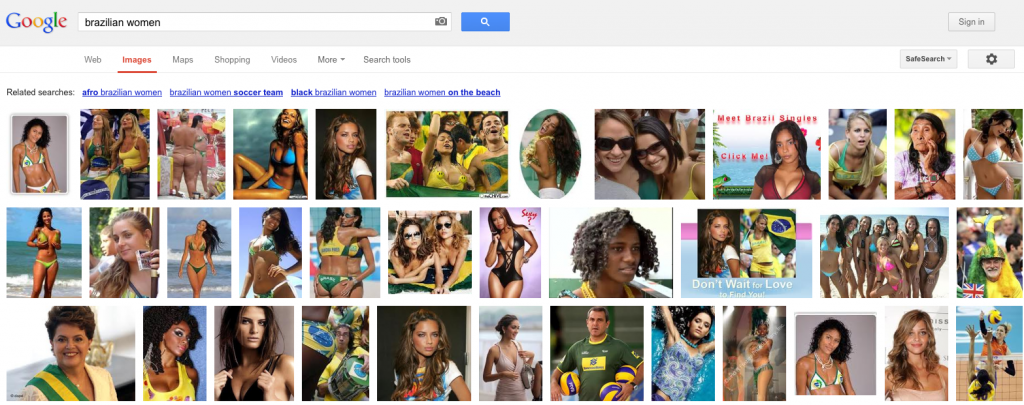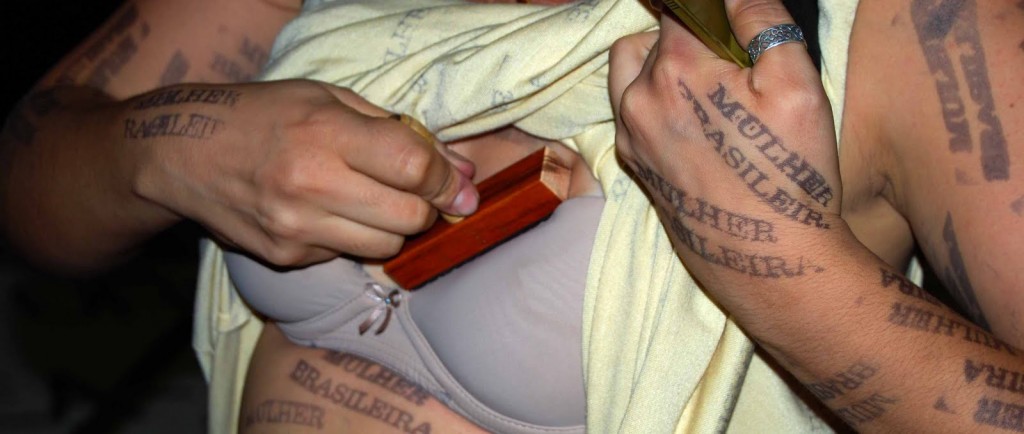[All links lead to Portuguese language pages except when otherwise noted.]
On the television program “Justiça Cega?” (Blind Justice), which airs on the Portuguese network RTP, the president of the Portuguese Bar Association, Marinho Pinto, claimed “one of the things Brazil has most exported is prostitutes, among other things.”
This statement was made as part of Pinto's comment about the case of Catarina Migliorini, a Brazilian woman who sold her virginity for nearly 600,000 euros to Japanese business man Natsu. Marinho Pinto claimed the Brazilian government “is charging the young woman for prostitution,” but the Attorney General's Office is actually looking to charge the organizer of “Virgins Wanted” for human trafficking and prostitution.
There has been no shortage of reactions of indignation to Pinto's statement on Facebook and Twitter under the hashtag #justicacega. Messages have been left on the Facebook wall of Brazil's Ministry of Foreign Relations asking that both the ministry and the Association of Immigrants and Feminists take a stand.
The Brazilian Association of Lisbon (CBL), together with the Lusophone, Cultural and Civil Association (ALCC), the CommuniDária Association and the Women's Union – Alternative and Response (UMAR), published an article in response:
A infeliz perpetuação desta imagem redutora e hipersexualizada da mulher brasileira, através de pessoas que ocupam cargos de responsabilidade, como o Dr. Marinho Pinto, tem implicações graves para a vida de cada uma das brasileiras vivendo em Portugal. São frequentes os casos de assédio sexual, discriminação no emprego e na vida social, bem como dificuldades no acesso ao alojamento e interrogatórios abusivos nos aeroportos e nas esquadras de polícia.
The unhappy perpetuation of this reduced and hypersexualized image of Brazilian women by people in high positions, like Dr. Marinho Pinto, has severe implications for each of the Brazilian women living in Portugal. Cases of sexual assault, job and social discrimination, difficulties to gain access to housing, and abusive interrogations at airports and police stations are frequent.
The Office of the Secretary of Women's Policies, one of the presidential cabinets responsible for drafting and coordinating public policy concerning Brazilian women, reacted by stating that the ambassador of Brazil in Lisbon had already expressed the Brazilian government's indignation over the statement to the president of the Portuguese Bar Association.
In a written response, Marinho Pinto said the repercussion of his statement “was only shocking because it is the truth” and he claims his comment was addressed to the Brazilian prostitutes who are victims of female trafficking in Portugal.

A Google search for “Brazilian women” reflects the stereotype the country's women face.
Marinho Pinto's statement brings us back to the polemical discussion about the image of Brazilian women abroad. It is not uncommon to find Brazilian women minimally clad and photographs from Carnaval or a beach.
“Journalists and the foreign media in general tend to represent Brazilian women with a certain degree of maliciousness, an excess of prejudice and overgeneralization,” reads an article published in Observatório Mídia & Política (The Media and Policy Observer) by Katia Belisário, professor at the School of Communications at the University of Brasília and a doctoral candidate in journalism and society:
Representações estereotipadas e preconceituosas por parte da imprensa podem gerar consequências nefastas, tanto para a imagem da brasileira no exterior, quanto para o Brasil como um todo.
Stereotypical and prejudiced depictions by the press can lead to disgraceful consequences both for the image of Brazilian women abroad and for Brazil overall.
In her blog, Brazilian Melissa Rossi wrote [en] about her experience in Italy and how the local media was prejudiced in its treatment of her fellow Brazilian women:
I have never read one single article [in] the Italian media that does not play down the image of Brazilian women, often resorting to offensive stereotypes, which portray them as pretty but stupid.

Performance art entitled “Carimbada” (Stamping) by graphic designer Janaína Teles in her blog Corpo des-mapeado (Unmapping the Body): “I use the stamp as an object that brands and marks the bodies of others just like our own…. It is witness to an act of self acknowledgement by this branded and stereotyped woman clearing a path for a chance to ascribe new significance and identity.”
In February 2012, Claudia M. Vieira, an attorney and professor for students pursuing a master's degree in international law and international relations at the University of Lisbon, wrote on the site Sair do Brasil (Leaving Brazil) about the effects of prejudice and discrimination against Brazilian women abroad:
É tão grave a situação que as próprias mulheres brasileiras estão mudando o comportamento. As que ja vivem mais tempo fora do Brasil, já nem sorriem naturalmente, não brincam, não usam as roupas que gostam, tudo isso, por medo de sofrer preconceito. No curso de Mestrado da Universidade de Lisboa, constatei algumas alunas, falando com o sotaque português para serem aceitas, com a desculpa de que assim eles, os portugueses as entendiam melhor.
The situation is so severe that Brazilian women themselves are changing how they act. Those who have been living outside Brazil for some time do not even smile naturally, do not joke, do not use the clothes they like, all because of a fear of suffering prejudice. In the master's course at the University of Lisbon, I found some female students talking with a Portuguese accent in order to be accepted, citing that this way the Portuguese women understand them better.
Meanwhile, in September 2011 while working on her doctorate about the depiction of Brazilian women in Portuguese social media, Mariana Selister started the Brazilian Women's Manifesto (@MBrasileiras) as a rejection of the prejudice faced by Brazilian women in Portugal:
O estigma da hipersexualidade remonta aos imaginários coloniais que construíam as mulheres das colônias como objetos sexuais, escravas sexuais, e marcadas por uma sexualidade exótica e bizarra. Cita-se, por exemplo, a triste experiência da sul-africana Saartjie Baartman, exposta na Europa, no século XIX, como símbolo de uma sexualidade anormal. Em Portugal, esses imaginários coloniais, infelizmente, ainda são reproduzidos pela comunicação social.
The stigma of hypersexuality goes back to the historical concept of women in the colonies as sexual objects, sexual slaves, marked by an exotic and strange sexuality. Note, for example, the sad experience of South African Saartjie Baartman, exposed in Europe in the 19th century as a symbol of abnormal sexuality. In Portugal, these images developed back in colonial times are still perpetuated in social media today.
Ending with an appeal that is still current and ever urgent:
Exigimos, das autoridades competentes, que se faça cumprir a “CEDAW – Convenção para a Eliminação de Todas as Formas de Discriminação Contra as Mulheres”, da qual tanto Portugal, como o Brasil, são signatários. Destacamos, também, o “Memorando de Entendimento entre Brasil e Portugal para a Promoção da Igualdade de Gênero”, no qual consta que estes países estão “Resolvidos a conjugar esforços para avançar na implementação das medidas necessárias para a eliminação da discriminação contra a mulher em ambos os países”.
We demand that the authorities comply with the Committee on the Elimination of Discrimination against Women (CEDAW), to which both Portugal and Brazil are signatories, as well as to the Memorandum of Understanding Between Brazil and Portugal for the Promotion of Gender Equality, in which the countries “agree to join forces to advance in implementing measures needed to eliminate discrimination against women in both countries.”







3 comments
I have a new case in Dubai terrible as well where a woman work for Emirates Air lines and she been pregnat there without marriage.. Its crime over there.. She lost the job!
Brazilian women should not change because of some bigoted bad press. Who cares what they think elsewhere?
And, they are not promiscuous, they are just free and in control of themselves.
There is probably some very ugly trafficking for prostitution but that’s very different from sexual freedom.
I agree!